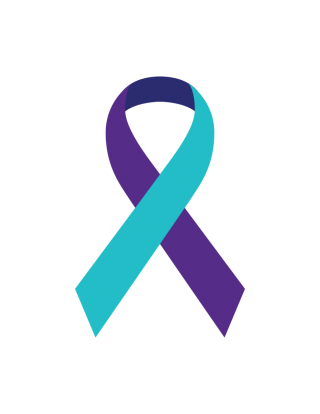How to make a real impact in suicide prevention
Suicide prevention is about being there for others any way you can

September 9, 2021
This week is the annual National Suicide Prevention Week. But what does that mean exactly?
Does it mean that for this week, only, we are nice to the quiet person? Does it mean we throw the suicide helpline on our Instagram stories without a second thought?
While this article is not meant to attack a certain type of person, a discussion must be had regarding the sincerity and purpose of what we are doing. Last week, an article was published in the Old Gold & Black about performative activism in the wake of the protests against sexual violence that published occurred on our campus. The questions the writer posed in their article are relevant again this week, as countless people will take to social media to throw their support towards people who struggle with thoughts of suicide, only to most likely leave those same people in the dust once the week concludes.
I wish to be clear here, posting resources and showing your support is important, but the point of a week like Suicide Prevention Week is to highlight an issue that occurs year-round and should be addressed in the same manner. If you are still unsure about whether or not you are engaging in performative activism, I encourage you to check out Isabella Mason’s article online and obtain a better understanding of the impacts your actions can have.
What we need to do is focus on how our actions affect others every day. You are not going to “cure suicide” by making that post or making that one comment. But what you could do is be a better neighbor by becoming more mindful of how your actions could affect someone who may or may not be in distress.
I don’t know if this sounds easy to you, but it shouldn’t. It would be naïve to think that every person struggles with suicide in the same way. This makes the task of educating yourself that much more difficult, but it is not impossible. In order to illustrate this, I will present an experience I have observed personally.
Let’s say that you see someone you know at a party. You know this person enough to say hello, but they are not necessarily a close friend. During the party they seem “normal,” acting as they have the dozens of other times you have seen them at other parties. This is the case for the rest of the night, and so you think nothing of it. The next day, you then hear that the person has tried to take their own life. What happened?
You spend the entire next day looking back through your memory, trying to recall any signs you saw that would indicate that the person was suicidal or depressed, but you can’t think of any. This is because during the time that someone is depressed or suicidal, they may not display any outward “symptoms.”
Our society has curated this picture of a suicidal person as someone who stands in the corner looking “sad”, but we can’t expect every person to display this behavior and indicate they’re hurting.
The truth is, there is nothing that should make us say, “You know what, I think I’ll be nice to this person,” as we should already be doing this. Being a kind person to everyone, year-round, is the best way to show your support for suicide prevention. You may never know if someone is feeling depressed or lonely, but if you are kind, compassionate, and make the effort to be a friend, you will have a more profound impact than whatever is posted on social media.
Suicide is not a new concept. But with the rise of social media and texting, FOMO (fear of missing out) has become increasingly real and apparent. A person can interpret a text or post in a way that makes them feel like they are not included or that they are not loved. A person may also just feel as if they don’t have any goals to strive for or that they won’t succeed in any of their endeavors. A community of love and support can help with this.
I would also be remiss if I did not mention that Wake Forest University does offer no-cost counseling services at the UCC. Encourage the use of this service to everyone, not just the people who you think may need it. Know that there is always someone to talk to.













